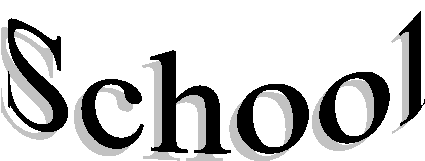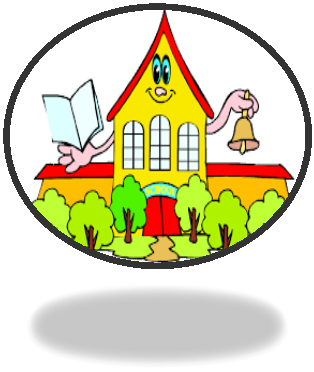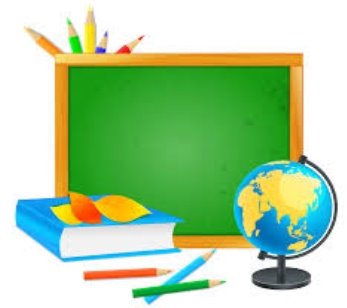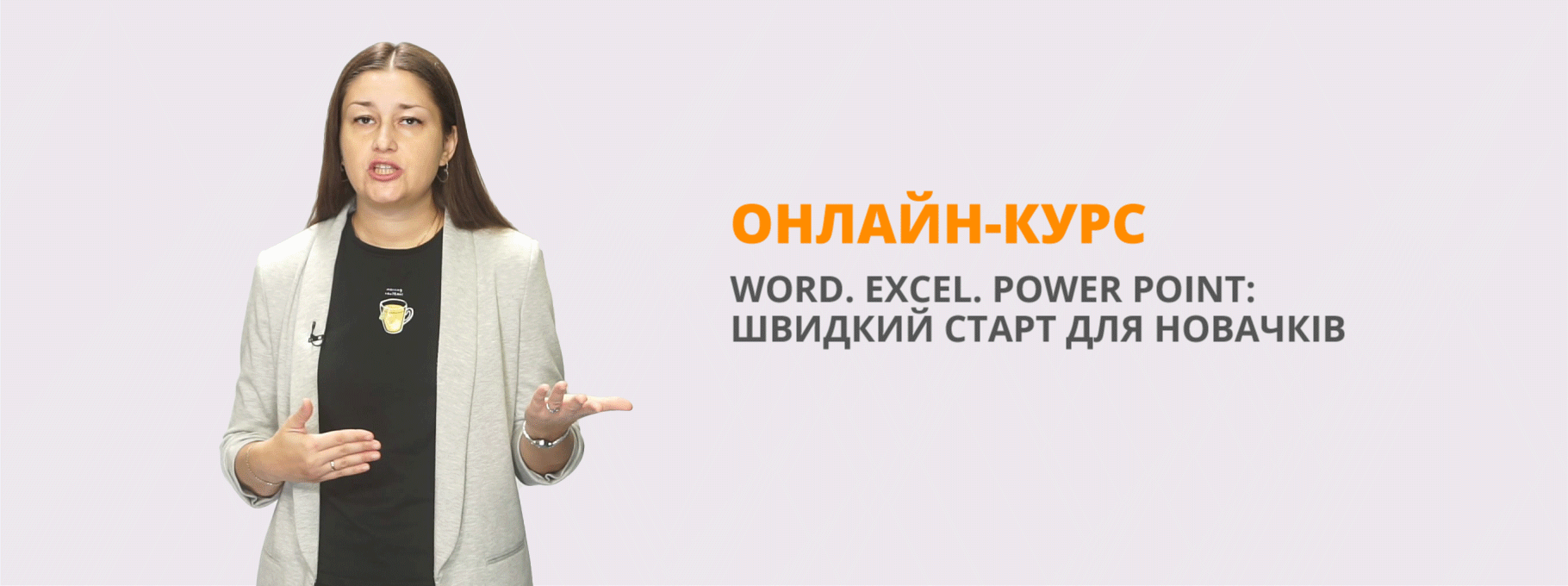Урок на тему "Школа", 8 клас, Лапко Т.В., місто Ніжин.
Метою цього уроку є активізація вживання вивченого лексичного матеріалу та структур пасивного стану, розвиток мовної здогадки й мовленнєвої реакції учнів, вдосконалення навичок усного мовлення, читання, зацікавлення учнів у розширенні своїх знань.
Nizhyn gymnasium №3

 Teacher:
Teacher:
Lapko T.V.
the 8-th form
2017-2018
Мета уроку:
- формування компетентності вживання вивчених лексичних одиниць;
- вдосконалювати компетентності усного мовлення, читання;
- розвивати мовну здогадку й мовленнєву реакцію учнів;
- активізувати вживання структур пасивного стану;
- виховувати зацікавленість у розширенні своїх знань та відповідальне ставлення до навчання.

1.Warming-up
What day is it today?
What lesson is it?
Is it important for you to learn English?
Is it difficult or easy subject for you?
Is it a boring or noisy lesson?
2.Proverb about the most important thing for effective learning
The more we study, the more we know.
The more we know, the more forget.
The more we forget, the less we know.
The less we know, the less we forget.
The less we forget, the more we know.
3.This line of letters is a sentence in which every letter E has been left out. You must put this letter in 8 times, and also find where to leave spaces between the words.
ASKNOWLDGINCRASSWONDRDPNS
As knowledge increases wonder deepens.
4.Where do you increase your knowledge?
Where do your wonders deepen?
Finish the following sentence:
School is the place where we:
- learn to know how to make the right steps in life;
- learn about a family living;
- learn about healthy lifestyle;
- learn about citizenship;
- learn to communicate;
- learn to understand other people;
- learn to be friends;
- practise our life skills;
- have to follow school rules;
- do the projects and experiments;
- learn to be positive and flexible;
- enrich your knowledge about life;
- learn to get on well with each other;
- learn to combine work and leisure;
- learn to cope with different tasks and problems.
5.Describe school life, teachers and pupils using adjectives.
School life: interesting, fantastic, exciting, easy, difficult, noisy, amazing, boring, wonderful, important, useful.
Teachers: sympathetic, highly qualified, understanding, intelligent, tolerant, patient, helpful, creative, sensitive, wise, up-to-date, fun-loving.
Pupils: hard-working, curious, ambitious, clever, honest, polite, talented, modest, diligent, responsible.
6.Vocabulary
All schools are different. But there are some people who are always ready to help the schoolchildren. Try to guess who they are.
This is a man or a woman who is in charge of school (a headmaster)
A person whose job is teaching different school subjects (a teacher)
A person who works with pupils, parents, teachers to test and understand how to help children study better (a psychologist)
A person who types different documents, deals with telephone calls ( a secretary)
A person who keeps books, textbooks in order, checks them and advises what book to borrow
(a librarian)
A person who takes care of pupils’ behaviour and their families, hobbies, interests (a sociologist)
A person whose job is to look after sick or injured pupils and help them to stay healthy (a medical nurse)
A person who organizes the process of studying, teaching and makes up a time-table (a vice principal)
People who fix many things at school (technical staff)
People who tidy up the school and make it neat and cosy (cleaners)
7.Translation
- Школа – це не тільки уроки. School isn’t only lessons.
- IШкола – це наші друзі та однокласники. School is our friends and classmates.
- Школа – це наша позакласна діяльність. School is our extra-curricular activities.
- Школа – це наші екскурсі, клуби, секції, дискусії. School is our excursions, clubs, sections and discussions.
- Школа – це наші концерти, вечірки, змагання. School is our concerts, parties and competitions.
- Школа – це наша скарбниця знань. School is our treasure house of knowledge.
8.Grammar
Rewrite the sentences in the Passive Voice
- We get profound knowledge at school. Profound knowledge is got by us at school.
- Nowadays we can choose the school for ourselves. Nowadays the school can be chosen by us for ourselves.
- Many pupils attend sports clubs and sections. Sports clubs and sections are attended by many pupils.
- The member of the European Club wrote letters to the penpals last year. Many letters were written by the members of the European Club last year.
- Pupils discussed the system of education in Great Britain at the Debate Club yesterday. The system of education in Great Britain was discussed by pupils at the Debate Club yesterday.
- The sportsmen of our school won many medals last month. Many medals were won by the sportsmen of our school last month.
9.Use the key words and speak about the system of education in Ukraine:
- at the age of six or seven
- kindergartens
- compulsory and free
- get primary and secondary education
- to be divided into
- four years
- basic knowledge and skills in
- five years
- science, humanities, mother tongue and foreign languages
- the basic school certificate
- last two years
- study more detailed
- after finishing the 11-th form
- applicants
10.Reading
A letter From an English Girl
Dear friends,
I am writing this letter from England. My name is Alice Stewart. I am fourteen. I go to a very large school. It is a girl's school. In our country there are a lot of schools where boys and girls study together, but there are also some boys and some girls' schools.
The teaching staff of our school is very large. We have a headmistress, a deputy head, about thirty teachers and eight hundred pupils. As it is a comprehensive school, there are not only academic subjects, but also accounting, typing, shorthand, nursing and housekeeping. Girls of 11 to 18 attend our school.
We have classes five days a week, Monday to Friday. I get to school at 8.40. We have prayers at 8.50 and start our lessons at 9.30. We have five lessons in the morning: two before break and three after break. After lunch we have two more lessons. But on Mondays we have an extra hour to discuss our form matters with the form mistress. School usually ends at 3.40.
We learn thirteen subjects: English, French, German, Maths, History, Science, Geography, Needlework, Art, Drama, Physical Training, Music and Religious Instructions. Well, enough about me. I'd love to hear about you.
Please, write to me about your school: I'm very interested if the schools in Ukraine differ greatly from our comprehensive school. Do boys and girls study together or in separate schools? What subjects are taught in your school? How many days a week do you go to school? What is your school day like? What is the difference?
I'm looking forward to hearing from you soon.
Yours, Alice
11.Answer the questions
Decide which of them refer to the text
- Was Alice taught to read, write and draw before going to school?
- What school does the girl study at?
- How many teachers and pupils are there in her school?
- Does she attend the school swimming pool twice a week?
- What other subjects except academic do they have?
- Alice’s parents are proud of her excellent marks at school, aren’t they?
- Do pupils have prayers at 8.50?
- Why is Monday interesting for pupils?
- Does she dream to visit Ukraine in future?
12.Discussion
What is the difference between her and your school?
13.Homework
Write a letter to Alice about your school.
14.Summary of the lesson.
-
Дуже корисний матеріал


про публікацію авторської розробки
Додати розробку
